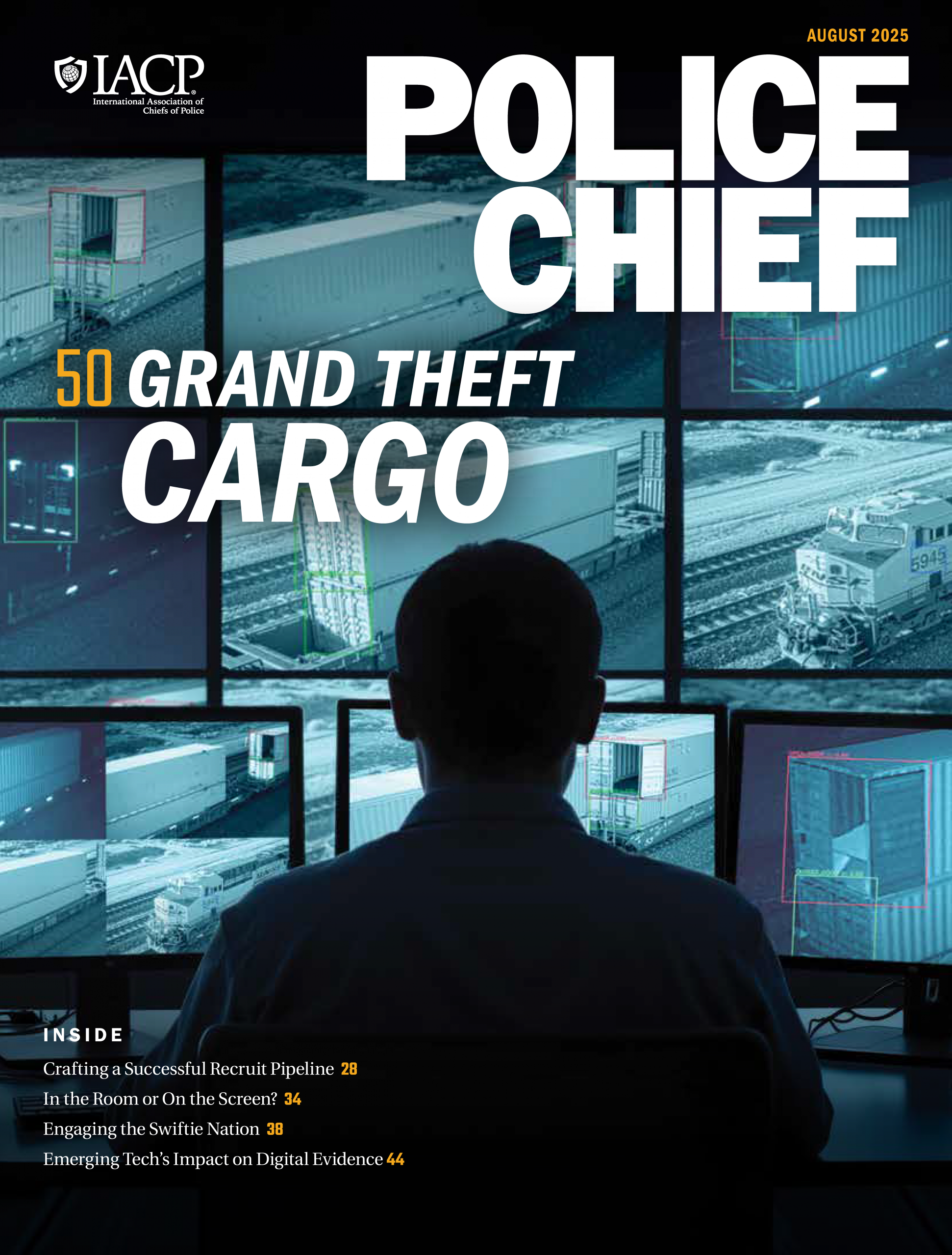The tragic events that have occurred in Charlottesville, Virginia; Pittsburgh, Pennsylvania; Quebec City, Canada; Dresden, Germany; and countless other locations around the globe serve as chilling reminders that too many communities are being targeted by hate and that these hate-motivated crimes are not confined by any geographic boundary.
There is perhaps no greater antithesis to the values inherent in policing than violence or intimidation in the name of hate and prejudice. World history is marred by instances where individuals have been targeted for their race, national origin, ethnicity, religion, gender, gender identity, disability, or sexual orientation. What makes hate crimes so malicious is that their impact spreads far beyond the direct victims and their families.
As police leaders, we know that hate crimes and hate incidents are heinous acts that demand immediate attention, response, and resolution. If a hate crime is not recognized for its hatred, the responsible parties and hate groups become emboldened—and often feel like their sentiments are shared or accepted. Additionally, unaddressed hate-driven violence can lead to a cycle of retaliatory crimes.
There is perhaps no greater antithesis to the values inherent in policing than violence or intimidation in the name of hate and prejudice. . . . These crimes spread fear, anger, and toxicity in the communities and nations where they take place.
If a law enforcement agency is viewed as not seriously addressing a hate crime, the situation can cause distrust and resentment toward law enforcement by the victims and other members of a community. Our responsibility as police leaders extends beyond just ensuring that hate crimes are thoroughly investigated; we also have a duty to reassure and provide resolution for the victims and the members in our community who might be affected.
Initial steps can be taken that can quickly bring comfort to the community. Reinforce the message that hate crimes will be investigated promptly and aggressively, thus enhancing the likelihood that the perpetrators will be apprehended and successfully prosecuted. In the case of graffiti, collect
the evidence needed, take photos, write up the necessary reports, and so forth—and then quickly make all attempts to have the offending images or words removed. This simple action demonstrates to the affected community that the crime is taken seriously and the victims responded to with care. Initiatives that build trust within our communities, reduce further victimization, and hopefully dissuade future hate crimes can lead to stronger community-police relationships and safer communities.
It is extremely important for both law enforcement and community members to report hate crimes. One of the greatest barriers to confronting and overcoming hate violence has been the lack of firm statistical data on the incidence and nature of those crimes. When community members report hate incidents and the police collect those data, the information can be a valuable tool for preventing these impactful community disturbances. Both community members and the police must send a unified message that hate is not tolerated in our communities.
Because this is such a challenging issue with broad impacts, the IACP has developed several resources to provide assistance. These resources include the following:
n Investigating Hate Crimes Model Policy and Concepts and Issues Paper
n “Responding to Hate Crimes: A Police Officer’s Guide to Investigation and Prevention,” a resource that was developed in concert with the U.S. Bureau of Justice Assistance and Office of Victims of Crime to provide best practices for aiding victims and the proper role for officers and agencies to play in responding to hate crimes.
n A resolution to commit to collect and analyze hate crime data and promote healing among hate crime victims, among other items.
n A forthcoming report on Enhancing the Response to Hate Crimes and Action Agenda as a result of our partnership with the Lawyers’ Committee for Civil Rights Under Law.
It is essential that we continue to be an integral part of the daily lives of our community members and a voice for healing when these crimes occur.
Stay safe. 🛡

Please cite as
Paul M. Cell, “Hate Crimes Demand Immediate Response,” President’s Message, Police Chief 86, no. 3 (2019): 6–7.


